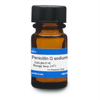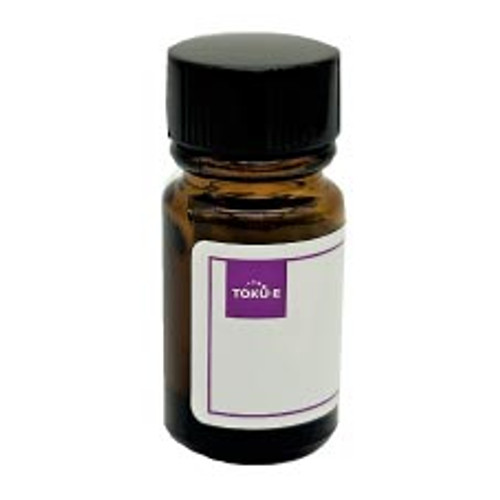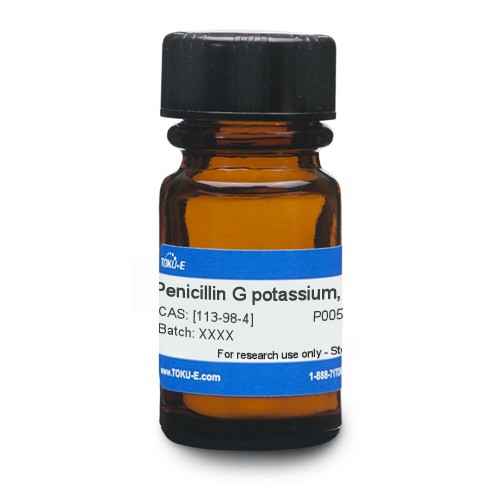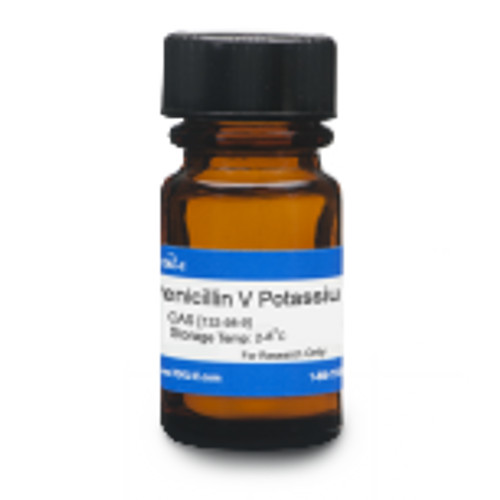Penicillin G Sodium, EP is the sodium salt of Penicillin G (syn: benzylpenicillin), a natural prdouct and β-lactam antibiotic derived from Penicillium spp. Penicillin G is produced via fermentation of Penicillin chrysogenum. Penicillin was the first antibiotics to be discovered by Dr. Alexander Fleming at St. Mary's Medical School in London in 1928. In acid aqueous environments, Pencillin decomposes into penicillic acid and peniloic acid. Penicillin G contains a 6'-phenylacetyl side chain. The compound can be used to study penicillin-binding protein 2.
Penicillin G Sodium, EP is sparingly soluble in aqueous solution.
We also offer:
For more forms of Penicillin, click here.
| Mechanism of Action | β-lactams interfere with PBP (penicillin binding protein) activity involved in the final phase of peptidoglycan synthesis. PBP’s are enzymes which catalyze a pentaglycine crosslink between alanine and lysine residues providing additional strength to the cell wall. Without a pentaglycine crosslink, the integrity of the cell wall is severely compromised and ultimately leads to cell lysis and death. Resistance to β-lactams is commonly due to cells containing plasmid encoded β-lactamases. |
| Spectrum | Penicillin is targets primarily Gram-positive bacteria including Staphylococcus and Streptococcus species. Some Gram-negative bacteria like Neisseia gonorrhoeae and N. meningitidis are also reported as suceptible. |
| Microbiology Applications | Penicillin is commonly used in clinical in vitro microbiological antimicrobial susceptibility tests (panels, discs, and MIC strips) against gram positive microbial isolates. Medical microbiologists use AST results to recommend antibiotic treatment options for infected patients. Representative MIC values include:
Mycoplasma Media SupplementsPenicillin can be used as a selective agent in several types of isolation media: Mycoplasma Agar - Mycoplasma Supplement G Mycoplasma Agar - Mycoplasma Supplement P |
| Molecular Formula | C16H17N2NaO4S |
| References |
Guzmán F (2008) Beta-lactams antibiotics (penicillins and Cephalosporins) mechanism of action. Medical Pharmacology. Pitout JD, Sanders CC, Sanders WE Jr. (1997) Antimicrobial resistance with focus on beta-lactam resistance in Gram-negative bacilli. Am. J. Med. 103:51 |
| MIC | Bacillus cereus| ≥2|| Bacillus pumilus| ≥1|| Escherichia coli| ≥15.11|| Micrococcus kristinae| ≥1|| Proteus vulgaris| ≥1|| Pseudomonas aeruginosa| ≥512 || Salmonella spp.| ≥4|| Shigella flexneri| ≥8|| Staphylococcus aureus| 1 - >32|| |








